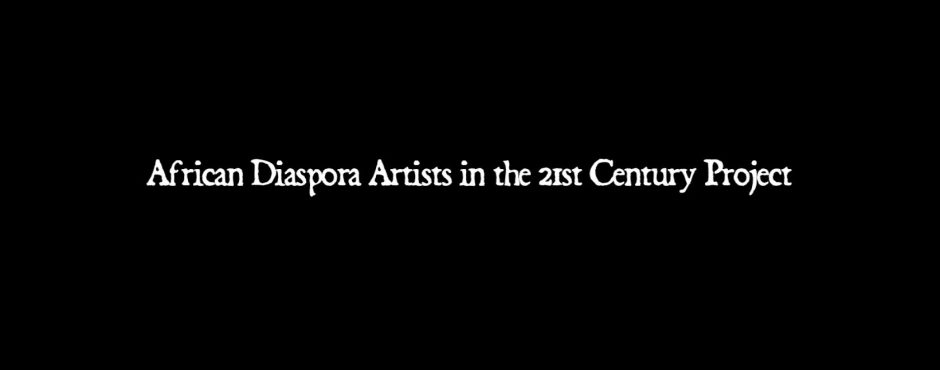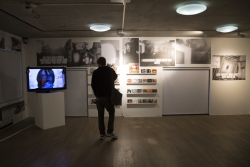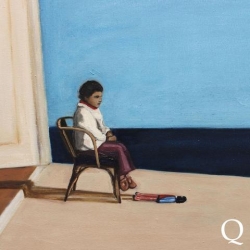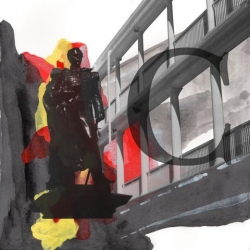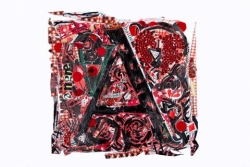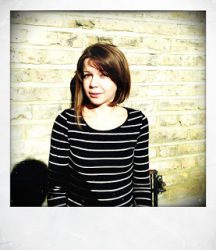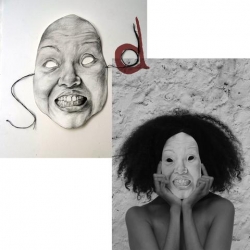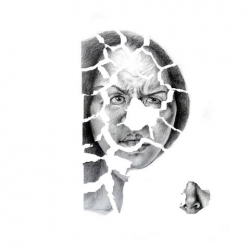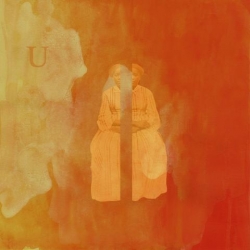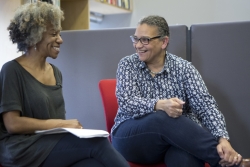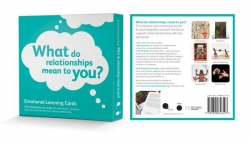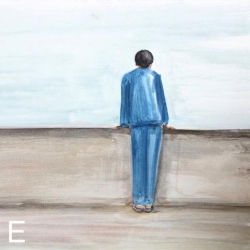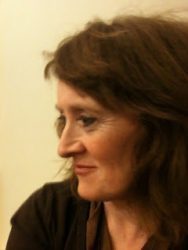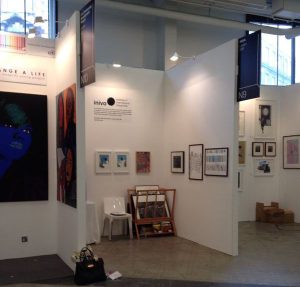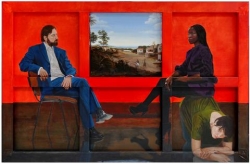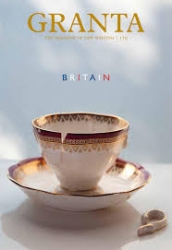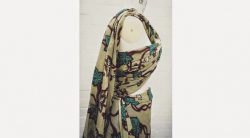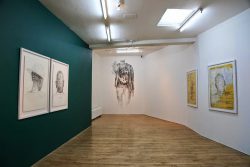- Venue
Stuart Hall Library
- Artists
This is a major new project that is building a new archive of filmed interviews with a range of contemporary British artists with links to the African diaspora. The interviews focus in detail on the artistic strategies, concerns and motivations of these artists in the production of their work often in the setting of their studios. The aim of the project is to promote greater understanding and appreciation of the work of artists of the African diaspora working in the UK today. In this first iteration of the project, the project curator Paul Goodwin selected ten artists with a wide range of practices. The interviews were commissioned by the Cultural Institute at Kings College London as part of their on-going programme of identifying key challenges and opportunities within the cultural sector and fostering connections and collaborations across the sector to enhance impact. One area that was identified as needing to be addressed was the relative lack of visibility of black artists in both market and institutional circuits of contemporary art in Britain. A core aim of the ADA21 project is to increase visibility and explore the public perception and reception of black artists’ practices.
A number of important criteria were considered in determining the selection of artists to be filmed. Gender balance was a paramount consideration as was selection on the basis of representing the widest possible range of media in order to give a snapshot of the broad range of practices that black artists are engaged in today: ‘traditional’ media such as painting, sculpture and drawing but also film and video, socially engaged art and digital media are present. There is a mixture of emerging and very experienced artists.
While the primary focus of the interviews are on the works of art and their production as described by the artists themselves, the interviews also address some critical questions that have emerged in recent years around controversial notions of ‘post-black’ art. The main focus here has been the debate on ‘post-black art’, which emerged in the US in the 1990s led by curator Thelma Golden and artist Glenn Ligon. In 2009 Paul Goodwin invited Golden to give a landmark lecture on “Post-Black Art Today” at Tate Britain as part of the Tate Cross Cultural Programme. This project is a follow up to that discussion.
The vigorously contested concept of ‘post-black’ initially attempted to identify a post civil rights generation of artists in America who introduced more complex aesthetic articulations of ‘blackness’ or black identity into their work. These artists demanded and claimed more freedom to define themselves beyond the traditional concerns of ‘black art’ and in so doing opened a debate about the increasing diversity and complex nature of artistic production by African American artists. ADA21 engages this question within the context of the production of black British artists today. The generation of artists that followed the 1980s radical Black Artists Movement in Britain have engaged a wide variety of strategies and concerns that have arguably extended debates beyond the more politicised representations of blackness that emerged in the 1980s. The question then becomes to what extent can the notion of ‘post-black art’ be usefully applied, if at all, to African diaspora artists in the UK? And given the transatlantic nature of these discussions, how do these artists situate themselves in relation to current debates about the globalisation of the art world?
The featured artists are:
Nicola Thomas, Barby Asante , Nicola Frimpong , Phoebe Boswell , Barbara Walker , Larry Achiampong , Cedar Lewisohn, Thomas J Price, Harold Offeh and Kimathi Donkor
Larry Achiampong’s solo and collaborative projects employ imagery, aural and visual archives, live performance and sound to explore ideas surrounding class, cross-cultural and post-digital identity.
Barby Asante is a London based artist, curator and educator, concerned with the politics of space.
Kimathi Donkor’s work re-imagines mythic and legendary encounters across Africa and its global Diasporas, principally in painting, but also through drawing, video, assemblage, collage, digital design, performance and installation.
Nicola Frimpong’s work is a reflection of her inner self, an honest statement exploring race, sexuality, and violence.
Cedar Lewisohn is a London-based curator, writer and artist, and published author on street art and graffiti.
Harold Offeh is interested in the space created by the inhabiting or embodying of history. His work encompasses performance, social practice, video and photography.
Thomas J Price’s work across media, encompassing sculpture, film and photography, is engaged with issues of representation and perception, in society and in art.
Nicola Thomas is interested in the awareness of the ‘gaze’ and the aspect of looking, whether it is by the artist, the camera lens, or the viewer, and the tension that arises from its courtship by the subject-artist-lens.
Barbara Walker’s paintings and drawings of the human figure open up a dialogue with viewers concerning the notions about race identity, belonging, class, power and the politics of how we look at others.
The filmed interviews were held in the Stuart Hall Library at Iniva and are freely available for public consultation and research purposes by making a request to the Iniva Librarian.
African Diaspora Artists in the 21st Century (ADA21) was conceived and curated by Paul Goodwin (independent curator and Professor of Black Art and Design at University of the Arts London). and is a collaborative project by the Cultural Institute & Institute for North American Studies, King’s College London with Iniva (Institute of International Visual Arts). Funded by the King’s Cultural Institute Innovation Programme.
Team
Project Leader: Dr Lisa Kingstone, Institute for North American Studies, King’s College London
Cultural Institute at King’s Associate: Dr Gus Casely-Hayford
Academic Lead: Professor Paul Gilroy, Department of English, King’s College London
Project Curator: Professor Paul Goodwin (University of the Arts London), consultant for King’s College London
Iniva Lead: Tessa Jackson OBE
Art Directors: Trevor Mathison & Gary Stewart (Dubmorphology)
African Diaspora Artists in the 21st Century was a collaboration between King's College London's Department of International Development and Iniva (Institute of International Visual Arts), supported by the university's Culture team.
